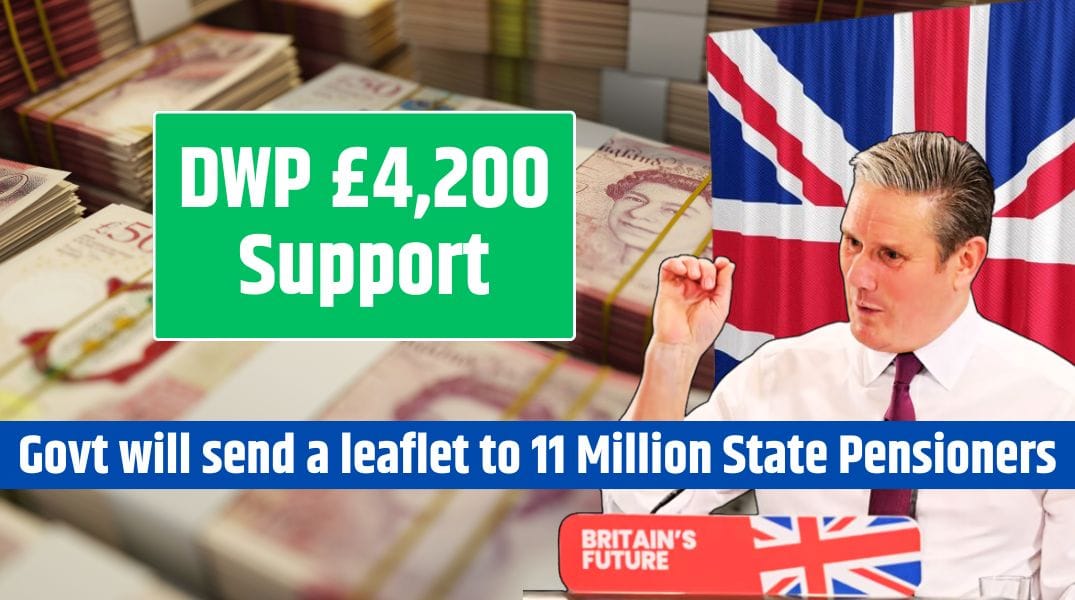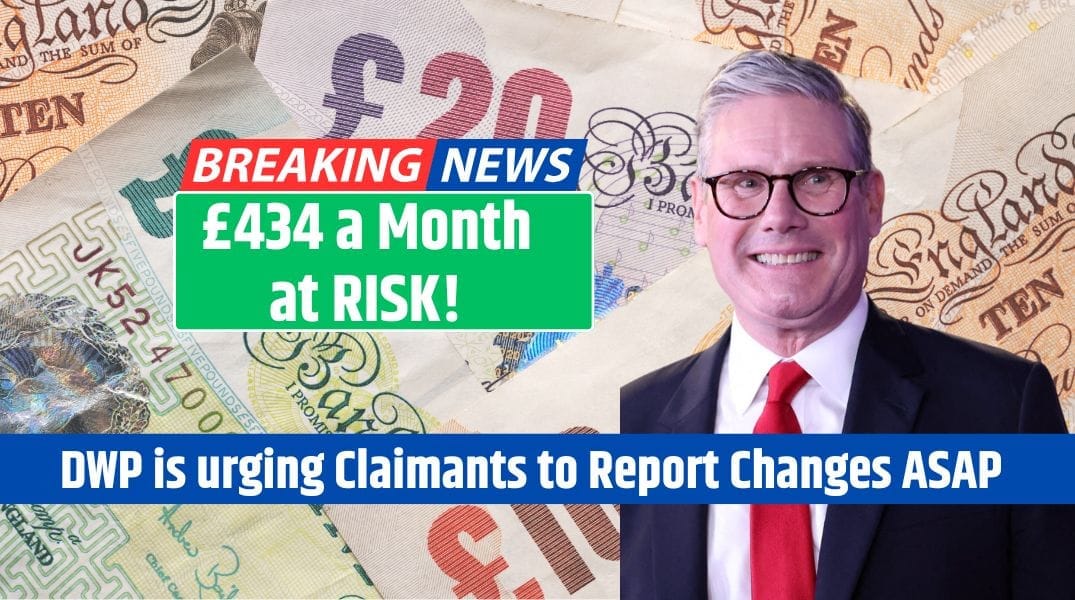£416.19 Victory for Disabled People: The High Court has ruled that the UK Department for Work and Pensions (DWP) acted unlawfully in presenting proposed changes to disability benefits as a way to help disabled people find work, without clearly stating that cost-cutting was the primary reason behind the reforms. The Court ruling follows a legal challenge by disability rights campaigner Ellen Clifford, who argued that the consultation process was misleading and unfair.
Key Findings of the Court Ruling – £416.19 Victory for Disabled People
Misleading Consultation Process
The court found that the DWP failed to inform the public that the planned reforms would result in 424,000 disabled people receiving lower benefits, leaving many worse off by at least £416.19 per month. The consultation period lasted just under eight weeks, which the judge deemed unlawfully short, considering the significant impact of the changes.
Severe Impact on Disabled People
The reforms would have forced many disabled people to meet stricter conditions to receive benefits, with the risk of sanctions if they failed to comply. Internal DWP documents, revealed during the case, showed that officials knew nearly 100,000 disabled people could be pushed into absolute poverty due to the proposed changes.
Lack of Transparency and Fairness
The consultation presented the reforms as a way to help disabled individuals move into employment. However, the court found no evidence that these measures would achieve this goal. Instead, internal documents revealed that the primary focus was reducing government spending on disability benefits.
Ellen Clifford’s Legal Challenge
Disability rights activist Ellen Clifford, supported by the Public Law Project, challenged the legality of the consultation. She argued that the process failed to properly engage with Deaf and Disabled people, who would be directly affected by the reforms.
“I am overjoyed that the court has recognized the importance of properly consulting Deaf and Disabled people on reforms that would leave many worse off. This is a life-or-death issue,” Clifford said.
She also highlighted a DWP estimate, disclosed during the case, indicating that 100,000 vulnerable disabled people could be pushed into extreme poverty by 2026/27 due to these changes.
Revealing Internal DWP Documents
During the judicial review, several internal DWP documents came to light, showing:
- No proper employment, equality, or disability impact assessments were conducted before launching the consultation.
- Civil servants warned that the reforms would have a severe impact on people with mental health conditions, potentially worsening their well-being.
- Government officials were aware that the proposals would be controversial and sought to present them as work-related support, rather than cost-saving measures.
- Ministers included non-cost-saving proposals in the consultation to create the illusion that the changes aimed to help disabled people enter employment.
Public and Legal Reactions
The court ruling was welcomed by various disability rights groups, legal experts, and unions.
Legal Experts’ Perspective
Public Law Project lawyer Aoife O’Reilly, who represented Clifford, stated:
“This judgment has vindicated our criticism of the DWP’s unlawful consultation. We now urge the Government to scrap these reforms, which were misleadingly presented to Deaf and Disabled people.”
She emphasized that public consultations should be conducted fairly, especially when they affect marginalized groups.
Reactions from Disability Rights Organisations
- UK DDPO CRPD Monitoring Coalition: Called on the government to abandon the proposed reforms and work collaboratively with disabled people to create fair policies.
- Inclusion London: Criticized the DWP’s lack of transparency and urged the government to respect the rights of disabled individuals under the UN Convention on the Rights of Disabled People.
- Disabled People Against Cuts (DPAC): Welcomed the ruling but warned that any future government attempting to reintroduce such policies would face strong opposition.
Union Response
The Public and Commercial Services Union (PCS), which represents DWP employees, also condemned the reforms, stating:
“We welcome the judgment. The government’s consultation was seriously flawed. We urge the new administration to scrap these harmful changes and conduct a meaningful discussion on genuine welfare reform.”
What Happens Next?
With the High Court ruling against the DWP, pressure is now mounting on the government to drop these controversial reforms. Disability rights groups and legal experts are urging policymakers to engage in genuine, transparent consultations that prioritize the well-being of disabled people rather than budget cuts.
This case highlights the importance of fairness and honesty in government decision-making, especially when policies impact vulnerable groups. It remains to be seen how the government will respond, but campaigners are determined to ensure that disabled people’s voices are heard in any future welfare reforms.
FAQ
What did the High Court rule about the DWP’s benefit reforms?
The High Court ruled that the DWP’s consultation on disability benefit reforms was misleading, rushed, and unlawful. The government failed to inform disabled people that the main purpose of the reforms was cost-cutting.
How would the DWP’s reforms have impacted disabled people?
The reforms would have led to 424,000 disabled people receiving lower benefits, with many losing at least £416.19 per month. Internal documents also suggested that nearly 100,000 could be pushed into absolute poverty.
Why was the consultation deemed unlawful?
The consultation was too short, did not explain the financial impact properly, and failed to provide evidence that the reforms would help disabled people get into work. The court found that the DWP misled the public.
What did internal DWP documents reveal?
Internal documents showed that the government had not conducted impact assessments before launching the consultation and knew the reforms would severely affect people with mental health conditions.
What happens next after the court ruling?
Campaigners and disability rights groups are urging the government to scrap the reforms and conduct a fair and transparent consultation that genuinely considers the needs of disabled people.
Who led the legal challenge against the DWP?
Disability rights activist Ellen Clifford, supported by the Public Law Project and legal experts, brought the case against the DWP, arguing that the consultation was unfair and misleading.
What are disability rights groups saying about the ruling?
Organizations such as Inclusion London and the UK DDPO CRPD Monitoring Coalition have welcomed the ruling and are calling on the government to work with disabled people to create fair policies.
What did the judge say about the consultation?
Mr. Justice Calver ruled that the consultation was ‘misleading,’ ‘rushed,’ and ‘unfair.’ He also criticized the government for failing to be transparent about the real purpose of the reforms.
Will the government appeal the ruling?
There has been no official statement on an appeal yet, but disability rights groups are prepared to continue their fight against any attempts to reintroduce these unfair reforms.
How can disabled people and supporters take action?
People can support disability rights groups, sign petitions, contact their MPs, and raise awareness about the impact of these proposed reforms on disabled individuals.


















How dare able bodied privileged people make such far-reaching decisions that can have such a devastating effect on less able bodied citizens. Nobody chooses to be born with a disability, but we have to live with it. We are subjected to accusations of being lazy and lying. We battle through life as best we can only to be told you are not worthy of help and support.
I can not help that I got an infection in my brain 14 years ago and i and my family have to live with that it’s rubbish that people think that people think that I’m lying about my disability if I had my way I would work and drive again!
This government needs to be taught a lesson , they are cruel,deceitful, and tell so many lies they are not a government for the people they also have Double standards and are robbing the state and destroying it, also there is no accountability, for there actions when the chancellor can claim 10,000 pounds to heat her 2nd home on the salary they have, there is a crooked system in place, and then take money away from pensioners and disabled and disability people that is not fair. Shame on them and I want the whole world to know how people in the UK get treated. Michael kearns. [email protected]
This petty government seems hell bent on destroying the lives of the most vulnerable in our society, while giving billions of British tax payers money for foreign issues, rather than looking after their own. Pensioners, disabled people, anyone without a voice
Governments do absolutely nothing to help and support people back into work they are hell bent on taking our benefits away and leaving us to rot. They are the biggest scroungers in society , let’s list the amount of benefits they claim oh wait they would call them perks of the job !
I’m glad the court has stood up for all disabled, but will the government acknowledge this and change its way? I am disabled and use an electric wheelchair, which has to be charged if not being used. If this goes ahead, I will be more anxious rebills and keeping warm. Not a pensioner yet praying they don’t change retirement
Hello Margaret Wilson,
Don’t worry High court will always stood up for people of United Kingdom.